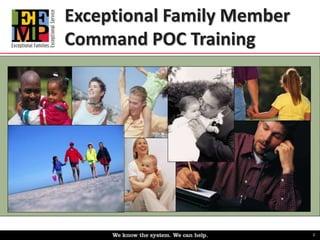In a move aimed at streamlining and improving support for military families, the Navy has announced a major overhaul of its Exceptional Family Member Program. However, the decision to eliminate categories within the program has sparked concerns among service members and advocates alike. As the Navy shifts towards a more individualized approach, questions arise about the potential impact on families with special needs dependents.
Overview of Navy Overhaul of Exceptional Family Member Program
The recent Navy overhaul of the Exceptional Family Member Program has sparked concerns among military families regarding the decision to eliminate categories for enrollment. This move, which aims to streamline the process and provide more individualized support, has left some families worried about the potential impact on services and resources.
While the Navy assures that the changes will result in improved care for exceptional family members, many are apprehensive about the lack of clear criteria for determining eligibility and support. Families fear that without distinct categories, certain needs may be overlooked or underrepresented in the program. It remains to be seen how the overhaul will ultimately affect those enrolled in the Exceptional Family Member Program, but for now, families are voicing their concerns and seeking reassurance from military officials.
Potential Impact of Ditching Categories on Military Families
Some military families are expressing concerns over the Navy’s decision to overhaul the Exceptional Family Member Program (EFMP) by ditching categories. This move has the potential to have a significant impact on military families who rely on the program for support and resources. Families fear that without the categories, it may be more difficult to accurately match them with suitable assignments and services, leading to potential challenges and disruptions.
Without the categories in place, there is a worry that the unique needs of each family member will not be properly addressed and accommodated. This could result in increased stress and uncertainty for military families, who already face many challenges due to the demands of military life. The Navy’s decision to ditch categories has raised questions about how the program will now operate and whether it will continue to effectively support military families in need.
Concerns Raised by Advocates and Experts
The proposed overhaul of the Navy’s Exceptional Family Member Program (EFMP) has sparked concerns among advocates and experts over the potential elimination of categories currently used to classify special needs of family members. Advocates worry that ditching these categories could lead to confusion and lack of clarity in identifying and meeting the unique needs of EFMP families. Additionally, experts fear that without specific categories, it may be challenging to ensure proper support and resources are provided to families with diverse needs.
Some of the key include:
- Loss of specialized services for specific categories of disabilities
- Difficulty in accessing appropriate healthcare and educational resources without clear designations
- Potential for increased stress and anxiety for EFMP families due to uncertainty about available support
| Concern | Impact |
| ————- |:————-:|
| Loss of specialized services | Reduced quality of care |
| Difficulty accessing resources | Lack of necessary support |
| Increased stress and anxiety | Negative impact on family well-being |
Recommendations for Ensuring Support for Exceptional Family Members
Despite the Navy’s overhaul of the Exceptional Family Member Program, there are concerns over the decision to ditch categories for classifying exceptional family members. While the intention behind the overhaul is to streamline the program and provide more tailored support, some families worry that this change could lead to a lack of specificity and individualized care.
For families navigating the challenges of supporting exceptional family members, it is essential to advocate for their unique needs and ensure they receive the support and resources they require. To mitigate the impact of the program overhaul, consider the following recommendations:
- Engage in open communication: Stay in touch with your support network, including healthcare providers, educators, and military family support services.
- Stay informed: Educate yourself on the changes to the Exceptional Family Member Program and how they may affect your family.
- Advocate for individualized care: Work with support services to ensure your exceptional family member’s needs are prioritized and addressed.
In Retrospect
while the Navy’s overhaul of the Exceptional Family Member Program may bring about changes that aim to streamline the process and provide better support to families, there are valid concerns about the potential impact of ditching categories. It is essential for the Navy to carefully consider the needs of all families and ensure that the new system continues to effectively serve those with exceptional family members. Only time will tell how these adjustments will shape the future of the program. Thank you for delving into this complex issue with us.
